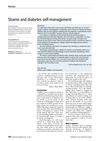280 citations,
May 2005 in “Andrology” Testosterone treatment for older men can have short-term benefits, but long-term risks are unclear, requiring careful evaluation and monitoring.

research Re
September 2003 in “Dermatologic Surgery” The letter criticizes generalizations about older patients' abilities and calls for respectful, individualized care, while the original authors defend the need to adapt communication for those with impairments.
 393 citations,
November 2000 in “Archives of General Psychiatry”
393 citations,
November 2000 in “Archives of General Psychiatry” Testosterone is important for men's sexual function, may help some women's sexual desire, while other hormones and neurotransmitters also play complex roles in sexual behavior.
 118 citations,
October 2013 in “Trends in Genetics”
118 citations,
October 2013 in “Trends in Genetics” The AUTS2 gene is linked to neurological disorders and may affect human brain development and cognition.
 81 citations,
July 2012 in “Translational Psychiatry”
81 citations,
July 2012 in “Translational Psychiatry” Memantine may slightly improve memory in people with Down syndrome, but more research is needed.
28 citations,
June 2015 in “Journal of circadian rhythms” An individual's morning or evening preference can predict changes in their body clock gene expression.
 November 2022 in “Current Psychology”
November 2022 in “Current Psychology” Ads showing gradual change work better for people less focused on new beginnings, while ads showing immediate change work better for those highly motivated by fresh starts.
7 citations,
January 2020 in “Journal of King Saud University - Science” Celery helps protect against developmental and brain issues in mice exposed to certain toxins.
The document provides detailed care instructions for elderly patients.
 2 citations,
June 2023 in “Food science & nutrition”
2 citations,
June 2023 in “Food science & nutrition” Eating apples can help prevent heart disease, cancer, and other conditions because they have healthy plant chemicals.
 31 citations,
September 2012 in “Human Brain Mapping”
31 citations,
September 2012 in “Human Brain Mapping” People with Seasonal Affective Disorder have different brain activity in certain areas when resting.
 September 2016 in “Springer eBooks”
September 2016 in “Springer eBooks” Looking older on the outside might be linked to aging faster on the inside and can be affected by lifestyle choices and health risks.
 8 citations,
April 2014 in “Practical Diabetes”
8 citations,
April 2014 in “Practical Diabetes” Feeling shame can make it harder for people with diabetes to take care of their health.
5 citations,
May 2018 in “European journal of pharmacology” Fesoterodine is effective and safe for elderly patients with overactive bladder.
 1 citations,
December 2021 in “Androgens”
1 citations,
December 2021 in “Androgens” Testosterone and its metabolites affect brain functions and could help treat neurological disorders.
3 citations,
October 2023 in “Cosmetics” Healthy lifestyle changes can significantly improve skin health as you age.
 7 citations,
January 2003 in “Elsevier eBooks”
7 citations,
January 2003 in “Elsevier eBooks” Testosterone is crucial for development, growth, and various body functions in mammals.
 December 2006 in “The Brown University Psychopharmacology Update”
December 2006 in “The Brown University Psychopharmacology Update” Second-generation antipsychotics offer no significant benefit over first-generation ones for schizophrenia.

Icosapent ethyl may help treat long-lasting symptoms after COVID-19.
 1 citations,
January 2024 in “Nature communications”
1 citations,
January 2024 in “Nature communications” Activating TLR5 in the gut can extend lifespan and improve health in aged mice.
 February 2025 in “IntechOpen eBooks”
February 2025 in “IntechOpen eBooks” Postpartum care should address hormonal changes, nutrition, and support to ensure mother and baby well-being.
7 citations,
May 2017 in “Behavioural brain research” Changing neuroactive steroid levels early in life can affect how adult rats respond to alcohol's stimulating effects.
37 citations,
February 2010 in “Psychoneuroendocrinology” Androgen self-administration might be controlled by membrane receptors, not nuclear ones.
238 citations,
April 2012 in “Cell stem cell” Targeting and modifying the stem cell niche can improve regenerative therapies.
 14 citations,
May 2021 in “Marine Drugs”
14 citations,
May 2021 in “Marine Drugs” PDRN, derived from salmon sperm, shows promise in healing wounds, reducing inflammation, and regenerating tissues, but more research is needed to understand its mechanisms and improve its use.
 27 citations,
January 2017 in “Neuropsychopharmacology”
27 citations,
January 2017 in “Neuropsychopharmacology” The enzyme 5α-reductase is key in causing psychotic-like effects from sleep deprivation.
 2 citations,
July 2020 in “Behavioural Brain Research”
2 citations,
July 2020 in “Behavioural Brain Research” Changing neuroactive steroids in baby male rats affects their memory and learning differently as they grow up.
 8 citations,
July 2018 in “Current Sexual Health Reports”
8 citations,
July 2018 in “Current Sexual Health Reports” Finasteride can cause lasting sexual dysfunction, depression, and other side effects, needing more research for treatment.
 2 citations,
February 2023 in “BJUI”
2 citations,
February 2023 in “BJUI” Urologists should monitor mental health in patients taking finasteride due to potential links to suicidal thoughts, adjusting dosage or stopping use if necessary. More research is needed to confirm if finasteride causes these thoughts.
 8 citations,
September 2016 in “Pediatric dermatology”
8 citations,
September 2016 in “Pediatric dermatology” People with Mucopolysaccharidoses often have skin problems like thick skin and extra hair, and recognizing these can help diagnose and treat the condition early.




















